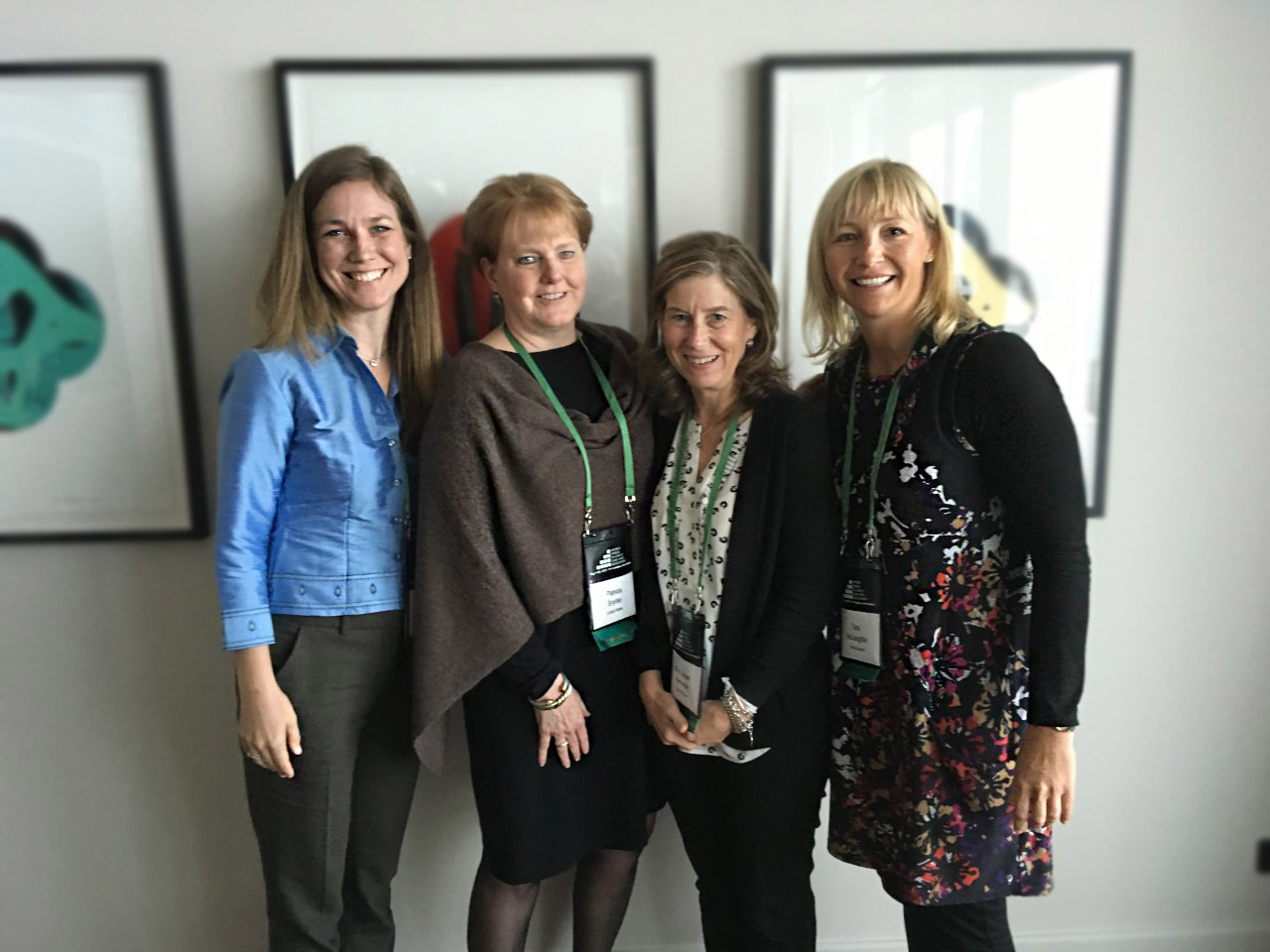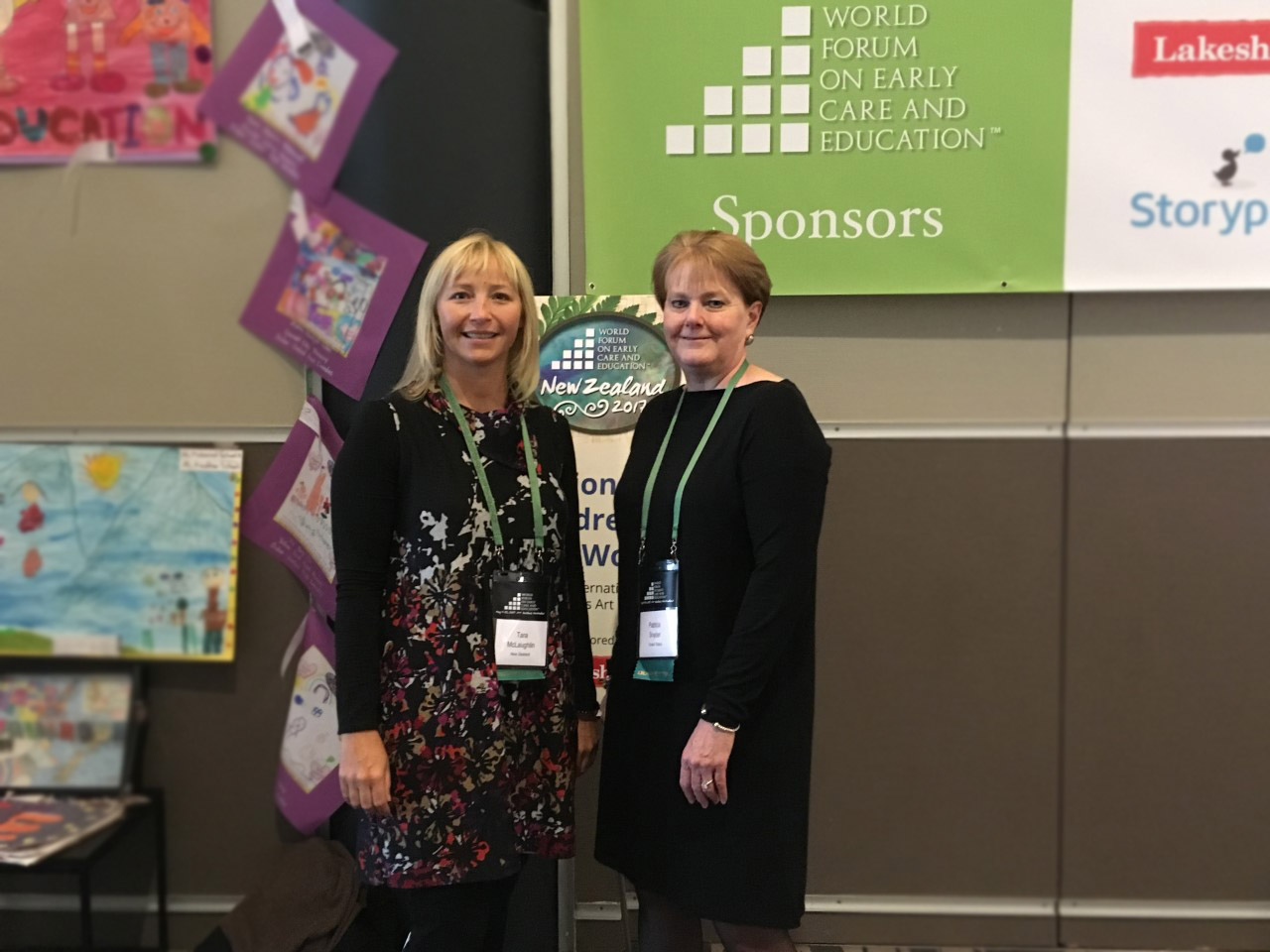Twenty-two hours. Eight-thousand, one hundred miles. University of Florida Professor and director of the Anita Zucker Center, Dr. Patricia Snyder, has gone global — again.
This past month, she attended the World Forum on Early Care and Education, an Early Childhood conference which engaged over 800 early childhood practitioners from over 80 nations to discuss early childhood topics. This year’s , held at the SKYCITY Hotel and Convention Center in Auckland, New Zealand, was related to theme of “sustainability.”
An early childhood researcher and advocate with expertise in embedded instruction in early childhood settings, social-emotional development and learning in young children, early childhood assessment, and practice-based coaching, Dr. Snyder appreciated the Summit’s offerings.
“They had a lot of networking sessions, so I appreciated attending some of them,” Dr. Snyder said. “I also met with some of the planners of the World Forum, and having opportunities to speak with them about the activities that are happening more broadly around early childhood, both within the World Forum, but also in the broader field was very helpful for informing our work at the Anita Zucker Center.”

Dr. Snyder joins Leslie Falconer (World Forum Foundation Board Member), Mary Louise Hemmeter, and Tara McLaughlin at the luncheon meeting hosted by Leslie for 10 researchers who presented at the conference).
Another key outcome of Dr. Snyder’s visit was the opportunity to share the evidence-based practices developed at the center with other early childhood leaders and collaborators. She joined colleagues Tara McLaughlin from Massey University, Mary Louise Hemmeter from Vanderbilt University, and Janene Swalwell from Monash University in Australia, to present a standing-room only session focused on practice-based coaching. Attendees were very positive about the session and the application of practice-based coaching in early childhood programs in different cultural and practice contexts.
“It’s important for us to consider the cross-cultural aspect of our work [in early childhood], and implications about whether or not they’re even viewed as feasible and acceptable for use in other cultures,” Dr. Snyder noted.
Thus, as the director of a center dedicated to creating locally, nationally, and internationally context-relevant solutions for all children, Dr. Snyder is especially focused on learning about what is socially valid and valued by practitioners and leaders outside of the United States.
“We’ve learned a lot about the differences between what we’re doing here in the United States and how early childhood programs are structured and implemented, and how our practices might need to be adapted for use in other countries before they are adopted for use. This must involve collaborators in other countries who can help us understand similarities and differences in philosophies about early childhood and early childhood development and learning,” Dr. Snyder said.
After the World Forum, Dr. Snyder also met with Dr. McLaughlin, a previous Anita Zucker Center doctoral student, who is now a faculty member at Massey University in its Institute of Education. For the past four years, Dr. McLaughlin has been using the specialized training she received at the center (such as embedded instruction, and professional development and learning for early childhood teachers) to positively impact early childhood settings in New Zealand. She also is a current collaborator with Dr. Snyder, and center professor Dr. Mary McLean on their embedded instruction work in California.

Dr. Snyder and Dr. Tara McLaughlin pose for a photo at the World Forum.
This visit, Dr. Snyder noted, continued to cultivate the current research relationships between the Anita Zucker Center in Gainesville, and Massey University in New Zealand.
“She [Dr. MacLaughlin] has taken a lot of the work that we’ve done here at the center around embedded instruction for early learning and the Pyramid model, and she’s working on adapting them for application in New Zealand…we have an exchange program going on. I’ll be spending additional time with her in the Institute of Education at Massey University in the coming years,” Dr. Snyder said.
Dr. Snyder also noted she is confident this visit has sparked global conversations about how to best serve children, especially in diverse contexts.
“We have to be careful not to be too Westernized, and recognize that we have to respect different cultures, and how different cultures think about some of the universals of early childhood development and learning,” Dr. Snyder said. “While there are a lot more universals than there are differences in how young children develop and learn, there are some culturally specific things that always have to be at the forefront of our conversations and collaborations.”
This visit was a great “forum” for continuing the momentum.
Story by: Alexis Brown
